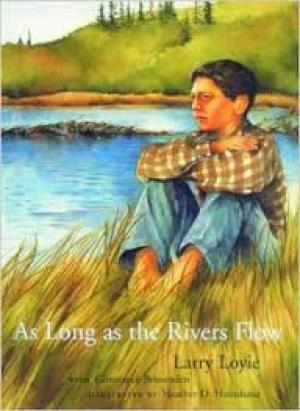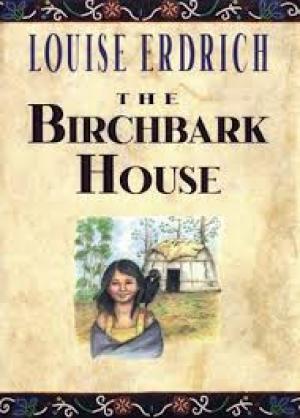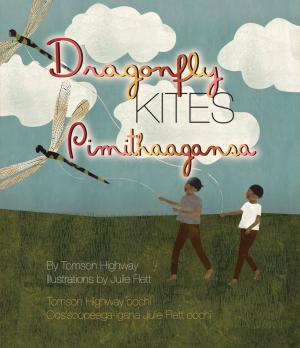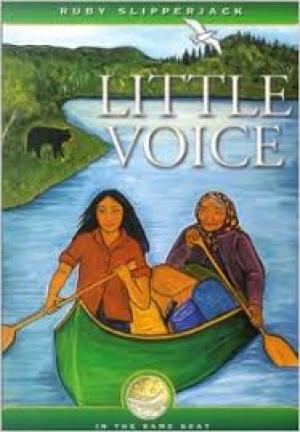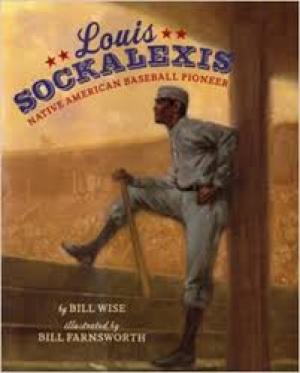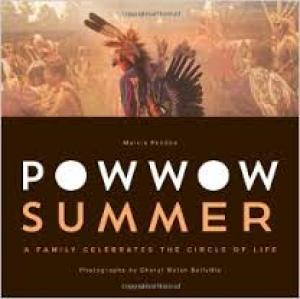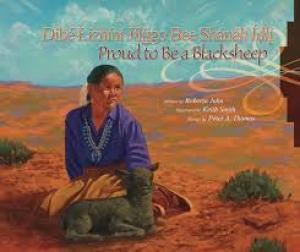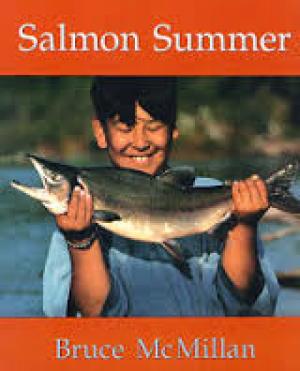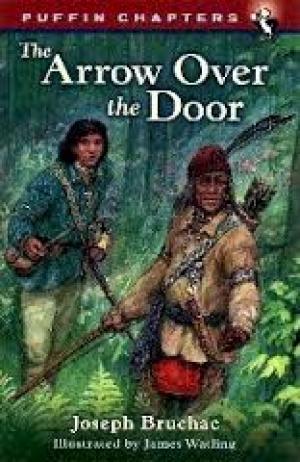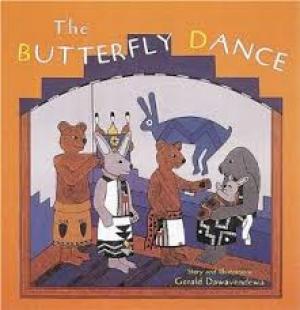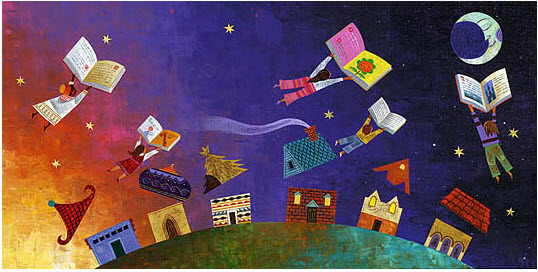Summer Stories: American Indian Heritage
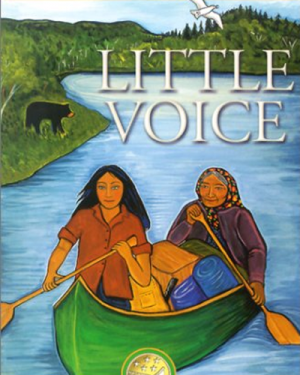
These books capture many aspects of what the summer can bring, from a boy's adventures following Alaska salmon to a young Ojibwe girl's coming-of-age trip to visit her grandmother in northern Ontario. The books also include seasonal celebrations occurring in the summer and the melancholy stories of young people preparing to attend (or escape from) residential boarding schools in the fall.
Other Resources
Find more American Indian/Alaska Native (AIAN) titles through:
- Colorín Colorado's AIAN Booklists and Book Finder
- American Indian Youth Literature Award
- Indigenous Reads Rising (We Need Diverse Books)
- Native Children's and Young Adult Books and Resources (Cynthia Leitich Smith)
- American Indians in Children's Literature (Dr. Debbie Reese)
As Long as the Rivers Flow
Loyie shares a quiet but powerful first-person account of his last summer before he and his siblings were taken away from their family. Most of the story focuses on what was otherwise a normal seasonal routine for the Cree people of that era, with the family moving from their main cabin to their summer "camp" for a few weeks…When the children learn that they must go to the residential school or their parents will be imprisoned, and they are physically loaded onto the back of a truck by strangers, the sense of separation and loss is keenly felt. — School Library Journal
Baby Learns About Seasons
"These seven beautifully illustrated bilingual board books for the very youngest picture-readers show Baby learning — by watching and helping — the things Diné babies learn. In Baby Learns About Seasons, Baby watches the changing seasons and learns about bottle-feeding the lambs and preparing the field for planting in the spring, gathering corn pollen and picking peaches in the summer, catching falling leaves and harvesting piñon nuts in the fall, and chopping wood and listening to stories in the winter." — Oyate
Birchbark House
Opening in the summer of 1847, this story follows an Ojibwe family through four seasons; it focuses on young Omakayas, who turns "eight winters old" during the course of the novel. In fascinating, nearly step-by-step details, the author describes how they build a summer home out of birchbark, gather with extended family to harvest rice in the autumn, treat an attack of smallpox during the winter and make maple syrup in the spring to stock their own larder and to sell to others. — Publishers Weekly
Dragonfly Kites
Dragonfly Kites is the third book in Tomson Highway's magical Songs of the North Wind trilogy. Like Fox on the Ice and Caribou Song, it has a bilingual text, written in English and Cree. Joe and Cody, two young Cree brothers, along with their parents and their little dog Ootsie, are spending the summer by one of the hundreds of lakes in northern Manitoba. Summer means a chance to explore the world and make friends with an array of creatures. But what Joe and Cody like doing best of all is flying dragonfly kites.
Grandma's Tipi: A Present-Day Lakota Story
Now that Clara is almost in third grade, she’s finally old enough to spend her first summer away from home visiting her grandma, Unci, and her cousin at their home in Standing Rock Reservation. To welcome her visit, Uncle Louie brings an extra-special surprise in his pickup truck: the tipi that’s been passed down through their family for generations. The girls learn how to stack the poles and wrap the canvas covering around them, how to paint spirit pictures on its walls, and how the circle of the tipi tells its own story, reminding us how to live in the great Circle of Life.
Home to Medicine Mountain
In the 1930s, two young brothers are sent to a government-run Indian residential school where they are forbidden to speak their native tongue and are taught to abandon their Indian ways. In this award-winning book, Judith Lowry's illustrations are inspired by the stories she heard from her father and uncle about their journey home one summer, escaping the school as stowaways atop a train.
Little Voice
Things have been hard for Ray, a young, green-eyed Ojibwe girl, since her father's accidental death. But when she spends the summer with grandmother, who is an elder and a healer, she finds her voice and begins her own process of healing. Set in northern Ontario in the late 1970s, this story from Ojibwe author Ruby Slipperjack speaks to a young girl's coming of age in a thoughtful, quiet way.
Louis Sockalexis: Native American Baseball Pioneer
On a Maine summer day in 1884, twelve-year-old Penobscot Indian Louis Sockalexis first fell in love with baseball. As he grew up, Louis honed his skills and dreamed of one day joining a major league team. Louis encountered opposition at every turn, from the jeers of teammates and the taunts of spectators to the disapproval of his father. With determination, courage, and quiet dignity, Louis Sockalexis smashed racial barriers and home runs, leaving an indelible mark on America's favorite sport.
Powwow Summer: A Family Celebrates the Circle of Life
Product Description: Marcie Rendon follows Sharyl and Windy Downwind and their children as they travel from their home on the Red Lake Reservation in Minnesota to powwows all around the region. At ceremonies and in daily life, Windy and Sharyl celebrate Anishinaabe (Ojibwe) culture by teaching their children traditional skills, dance steps, and lifeways, all part of the circle of community and the seasons and life.
Proud to Be a Blacksheep
Product Description: Curious, headstrong, and impatient, Shundeen is a young girl always in search of adventure. As the only Diné (Navajo) in her school, and growing up away from the Diné Reservation, she must retain her culture while surrounded by peers who don't understand it. Every summer, Shundeen lives with her grandparents on the reservation. When a day of adventure culminates in a terrifying accident, Shundeen discovers there is more to herself — and to her people — than she had ever imagined. Bilingual text.
Remember Me: Tomah Joseph's Gift to Franklin Roosevelt
Franklin Delano Roosevelt joyfully spent his boyhood summers on Campobello Island. It was there that he met Tomah Joseph, a Passamaquoddy elder and former chief who made his living as a guide, birchbark canoe builder, and basketmaker. Authors Soctomah and Flahive imagine the relationship that developed between these two as Tomah Joseph taught young Franklin how to canoe and shared some of the stories and culture of his people.
Salmon Summer
Product Description: Every summer, the salmon return to spawn in the streams of Kodiak Island, Alaska, and nine-year-old Alex, a native Aleut, comes here to fish with his family as his ancestors did. Bruce McMillan lived with Alex's family at their fishing camp on Kodiak Island and captures the natural beauty of the Alaskan island and the intense bond of family and tradition.
The Arrow Over the Door
For young Samuel Russell, the summer of 1777 is a time of fear. The British Army is approaching, and the Indians in the area seem ready to attack. To Stands Straight, a young Abenaki Indian scouting for King George, Americans are dangerous enemies who threaten his family and home. When Stands Straight's party enters the Quaker Meetinghouse where Samuel worships, the two boys share an encounter that neither will ever forget. Told in alternating viewpoints, this chapter book is based on a true story.
The Butterfly Dance
This story chronicles one important day seen through the eyes of a young Hopi girl named Sihumana, or "Flower Maiden", who is a member of the Rabbit Clan and winningly portrayed as a rabbit. After going with her grandfather to greet the sun and bless the day, Sihumana travels with her family to another village to take part in the traditional Butterfly Dance, performed late each summer in order to bring rain to the dry lands of the Southwest. (Tales of the People)
Wish Wind
A young boy wishes that Winter's cold, snow, and ice could be relieved by Spring and the warmth of New Sun. Then, he wishes that Spring be changed to Summer. Each time Boy complains, Wish Wind reluctantly grants him his wish. The Wish Wind points out our longing for change, with an unspoken reminder that enjoying each moment for what it offers now is a precious part of life. — Oyate
Related Content
Multicultural Literature
See more great related resources and videos in our Multicultural Literature section!

